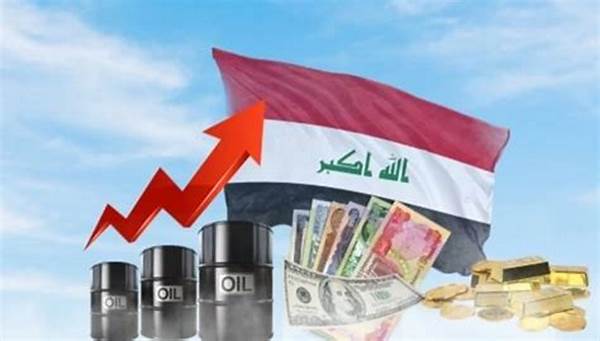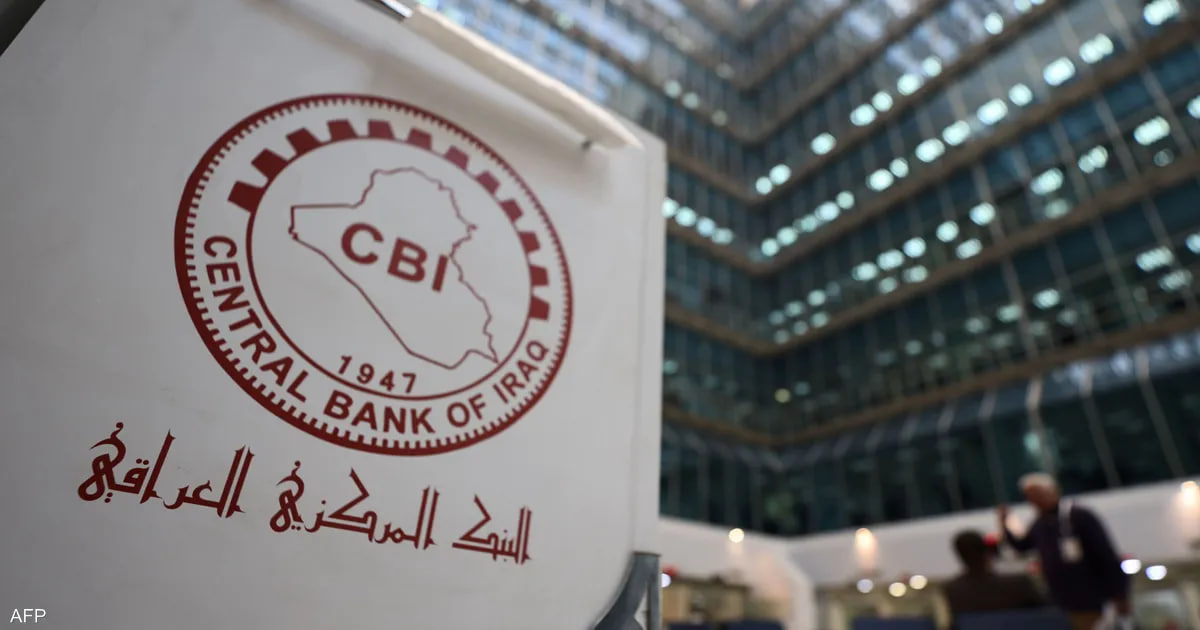Finally! .... A Budget Update! A Great CBI Article
publishes the agenda of the parliament session next Tuesday
The House of Representatives announced, today, Sunday, its agenda for Tuesday's session.
The media department of the House of Representatives stated in a statement received by the Iraqi News Agency (INA): “The agenda of Tuesday’s session included 5 paragraphs, and the following is the text of the agenda:
The Video for this blogpost is below here:
First: Voting on the draft law ratifying the air transport services agreement between the Government of Iraq and the Government of the Russian Federation (Foreign Relations Committee), (2) articles.
The light
Second: The first reading of the draft law regulating the rights of the victims of Ibn Al-Khatib Hospital, the victims of Al-Naqa Center, and the victims of the Al-Hamdaniya incident. Committee of Martyrs, Victims, and Political Prisoners (Health and Environment), (3) articles).
Third: The first reading of the draft law amending the fifth amendment to the Civil Aviation Law No. 148 of 1974 (Transport and Communications Committee), (58) articles.
Fourth: The first reading of the draft law amending the first law of the Federal General Budget Law of the Republic of Iraq for the fiscal years (2023-2024-2025) No. 13 of 2023. Finance Committee).
Fifth: Report and discussion of the second reading of the draft law amending the first Civil Defense Law
No. (14) of 2013 (Security and Defense Committee, Legal Committee).
The session starts at 11:00 am.

more details
In detail.. The Iraqi budget is subject to political and economic amendments on Tuesday
Parliamentary Finance Committee reveals the content of the amendments to the General Budget Law
more on the budget

Member of the Parliamentary Finance Committee, Moeen Al-Kadhimi, confirmed that the general budget does not need a vote or a new reading, as it was approved for a period of three years, explaining that the amendments proposed by the government are limited to Articles 12 and 13 only, which will be discussed and voted on in Parliament.
Al-Kadhimi pointed out that "Article 12 relates to the costs of oil production and transportation in the Kurdistan Region, while Article 13 is related to the resumption of oil exports through the Turkish port of Ceyhan," stressing that "this file has been suspended for more than a year."
He added that "the amendments aim to address the difference in production costs, as they were calculated according to the three-year budget law, as is the case in Basra ($5-6 per barrel), while production costs in the region amount to more than $20 per barrel."
Al-Kadhimi stressed that "the government attaches great importance to reforming these two articles, to get out of the current impasse and end the embarrassment related to the disruption of oil exports." He stressed that "resuming exports through the port of Ceyhan requires joint work and consensus among the concerned parties."
Mazhar Saleh reveals details of the 2023 budget and the 2024 budget horizon
Saleh explained in a statement to {Euphrates News} agency that "crude oil contributes less than 90% of the annual general budget, but the average price per barrel in 2023 reached $83, which covered the deficit and made the budget deficit-free."
Regarding the 2024 budget, Saleh pointed out that “the expected average price of a barrel of oil is about $75 per barrel, which requires some borrowing to support investment expenditures at a rate not exceeding 3% of the gross domestic product,” describing this as “the normal situation according to the principle of Iraq’s fiscal space.”
Assigning two international companies to study the Iraqi banking market

The financial advisor to the Prime Minister, Mazhar Mohammed Salih, announced today, Sunday, that the government is in the process of owning a banking system based on the foundations of the competitive market, while he pointed out that two international companies have been assigned to study the Iraqi banking market.
Saleh told the official agency: "The government's strategy for banking reform began with the government banking sector under the supervision of the Prime Minister and is based on isolating government financial operations from the activity of developing the banking market, because the government banking sector in its current traditional form dominates 88% of the country's banking activity, which made government banking operations mixed with market activity."
He added, "We are waiting for the birth of a banking system owned by the government, but based on the foundations of a competitive market in providing banking services and achieving actual financial inclusion and digital financial inclusion, and in line with the digital payments policy that our country has been strongly pursuing for more than a year," noting that "the private banking sector is also going through an evaluation phase, and there are opportunities for voluntary mergers between more than one bank that has an international strategic banking partner."
He explained that "the objectives of banking reform in Iraq will end with a high integration that achieves competitiveness, homogeneity, compliance and governance within the Iraqi banking market, and achieves the integration of the national banking market with the global market," noting that "the entire issue is being closely followed by Prime Minister Mohammed Shia al-Sudani after assigning two international companies to study the Iraqi banking market and in accordance with a new vision that is consistent with the national economy's need for credit and investment and mobilizing the public's accumulated resources to ensure a more stable and efficient national income cycle."
As for the private sector, Saleh explained that “the launch of the philosophy of development partnership between the state and the private sector was embodied for the first time in the government granting sovereign guarantees to the private industrial sector to collect global loans to finance production lines for the most important industrial projects from the European Union countries and Japan, which lead the future of development, and at five levels of industries, starting with guaranteeing financing for infrastructure industries related to the development path, pharmaceuticals, petrochemicals and refining, and ending with important digital industries, without neglecting the interest in supporting the agricultural sector and farmers in protecting the country’s food security from the production of important strategic food crops.”
He stressed that "the government has not neglected to implement the national strategy for the private sector, which hopes that the private sector's contribution to the country's GDP will increase from 37% currently to more than 54% in the coming years, by providing opportunities to establish the private sector through supporting government development financing for it, whether through the Iraq Development Fund or the Riyada Bank (mixed sector) established by the Central Bank of Iraq to promote the role of the private sector in development and raise growth rates in its investments and contributions to the country's GDP, in accordance with the private sector development strategy that the government has been adopting for years."
MP: We need to extend the legislative term for 8 sessions and the budget is the top priority
Al-Shammari told {Euphrates News} that: "There are important laws suspended within the House of Representatives, some of which are controversial and others need to be passed to serve the people."
He added, "The controversial laws that were included in one basket are the Personal Status Law, the General Amnesty, and the Popular Mobilization. In addition to these laws, there are laws in all the drawers of the parliamentary committees, including the Security and Defense Committee, where the Intelligence Service Law and Diplomatic Passports Law are ready, but due to these differences, they were postponed. "
Al -Shammari continued, "The Personal Status Law is not binding on all the Iraqi people, and everyone has the choice to choose the law that suits their situation."
Al-Shammari stressed "the need to extend the legislative term to 8 sessions to compensate for what we missed in the last legislative term, and for the Parliament Presidency to prioritize the laws according to the needs of the people."
He added, "I believe that the issue of the federal budget for 2025 and its completion for the next fiscal year is of utmost importance, and the parliamentary circles have the determination to approve the budget schedules, and we hope that the law will be passed in the coming days."
No comments:
Post a Comment